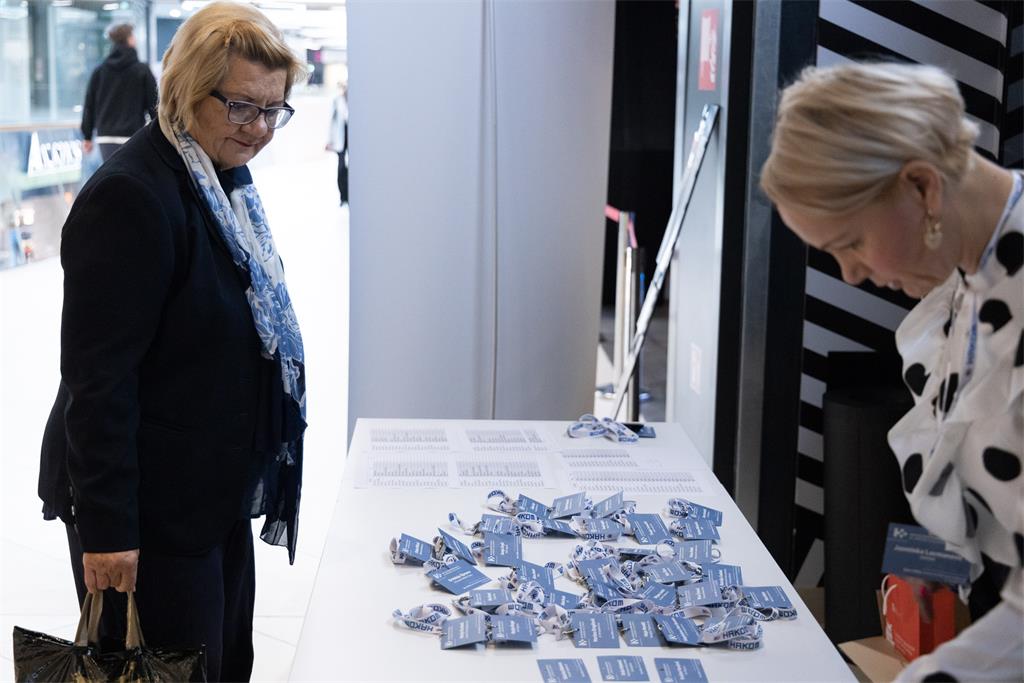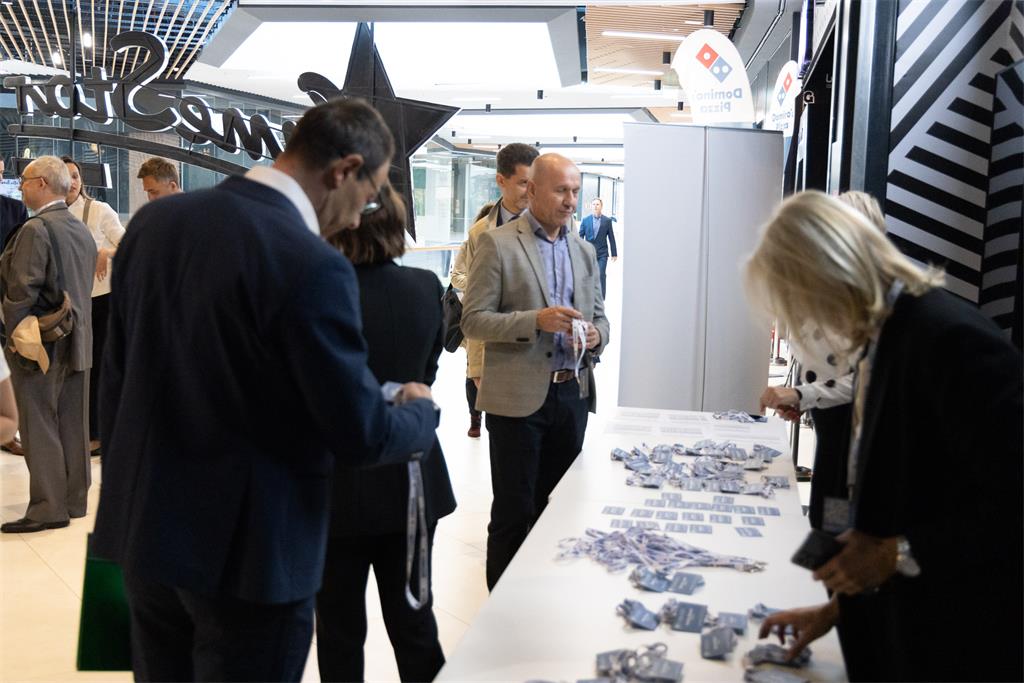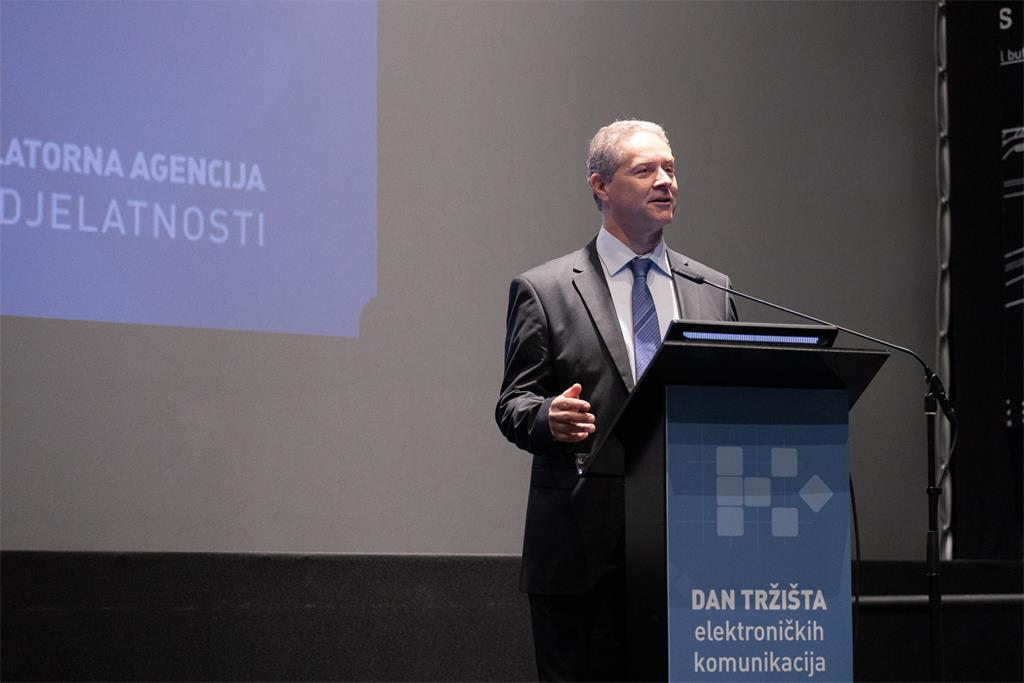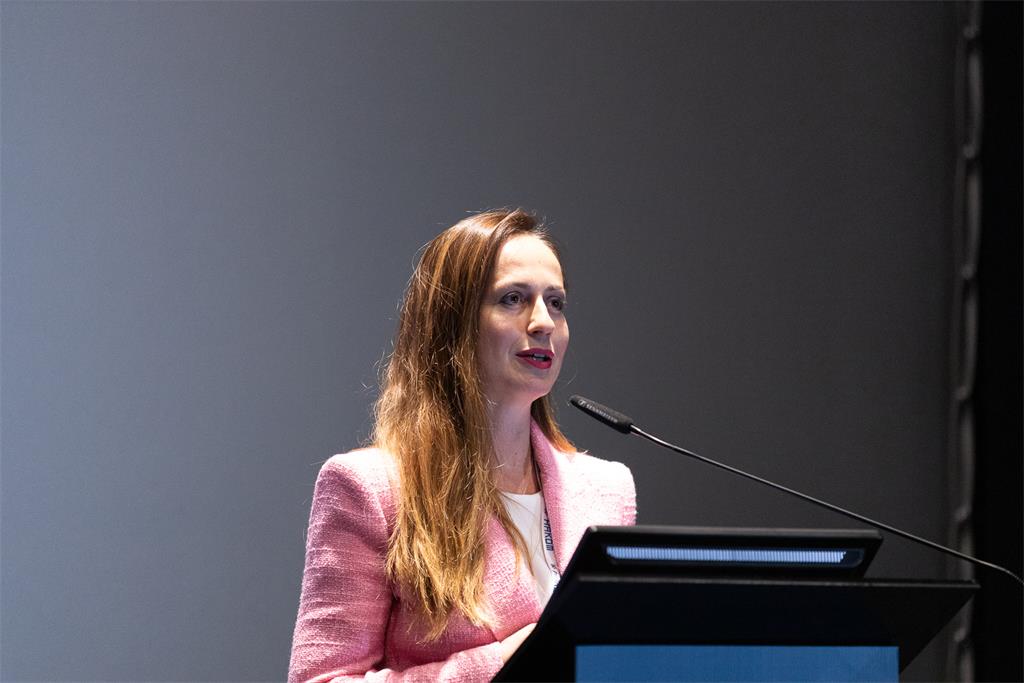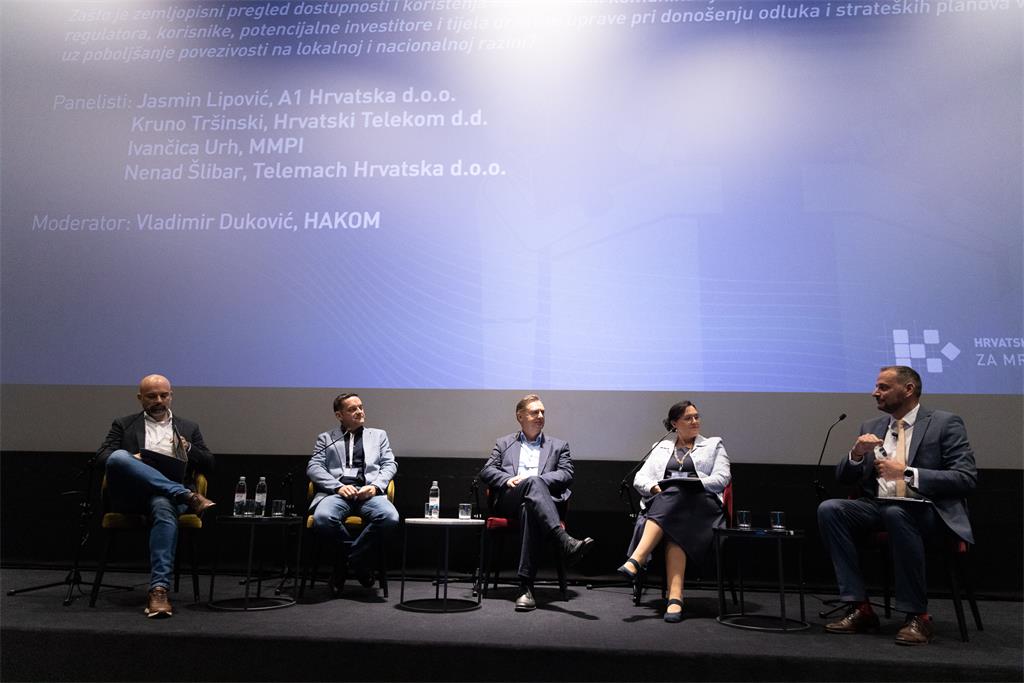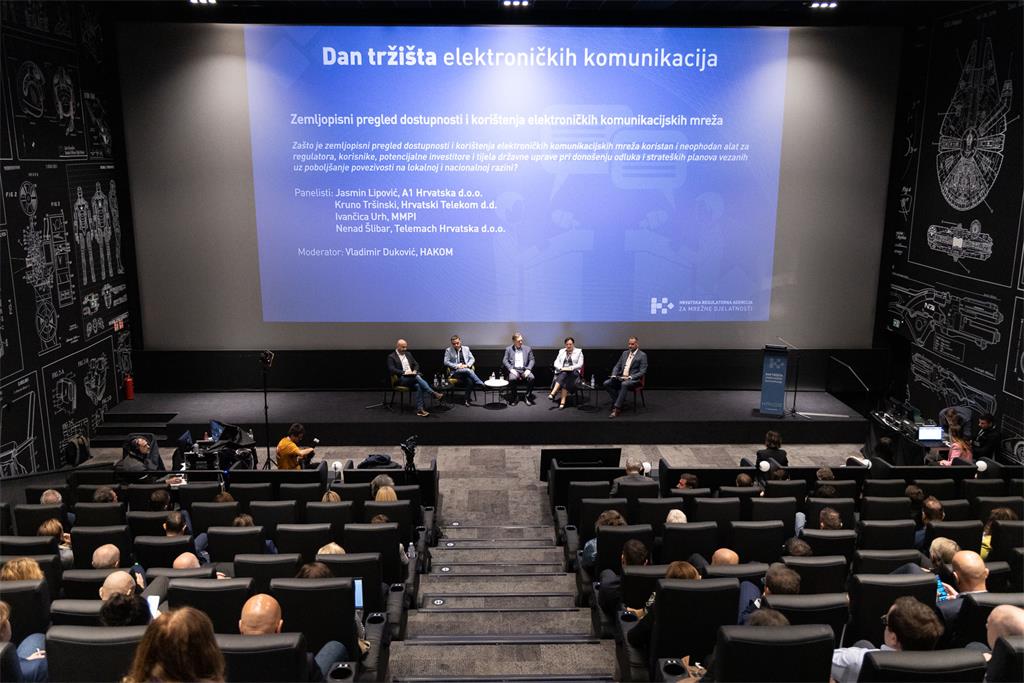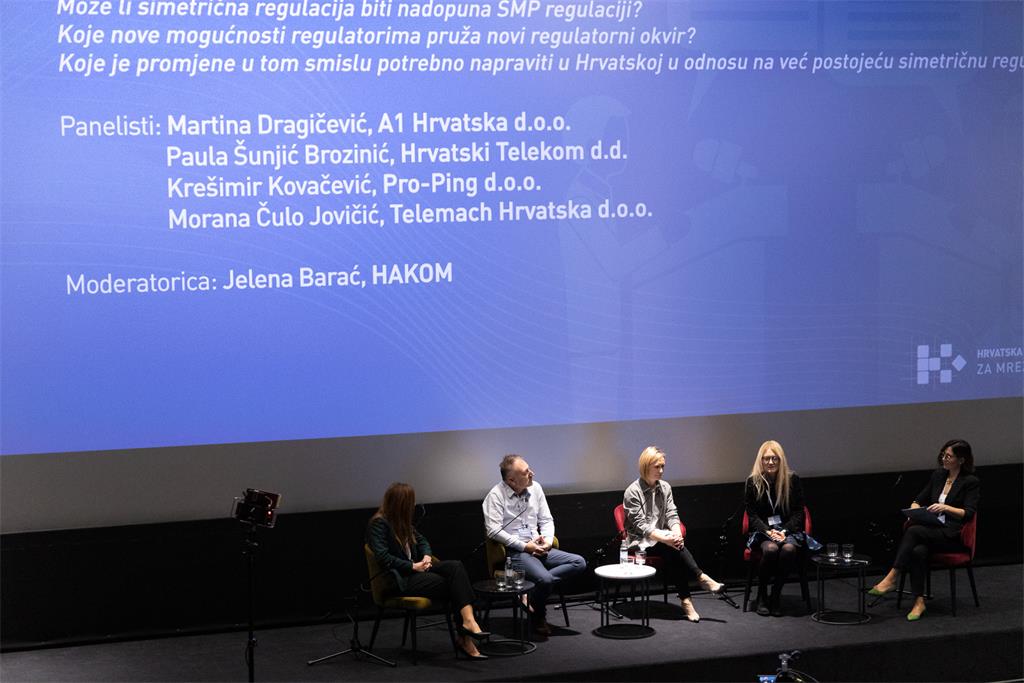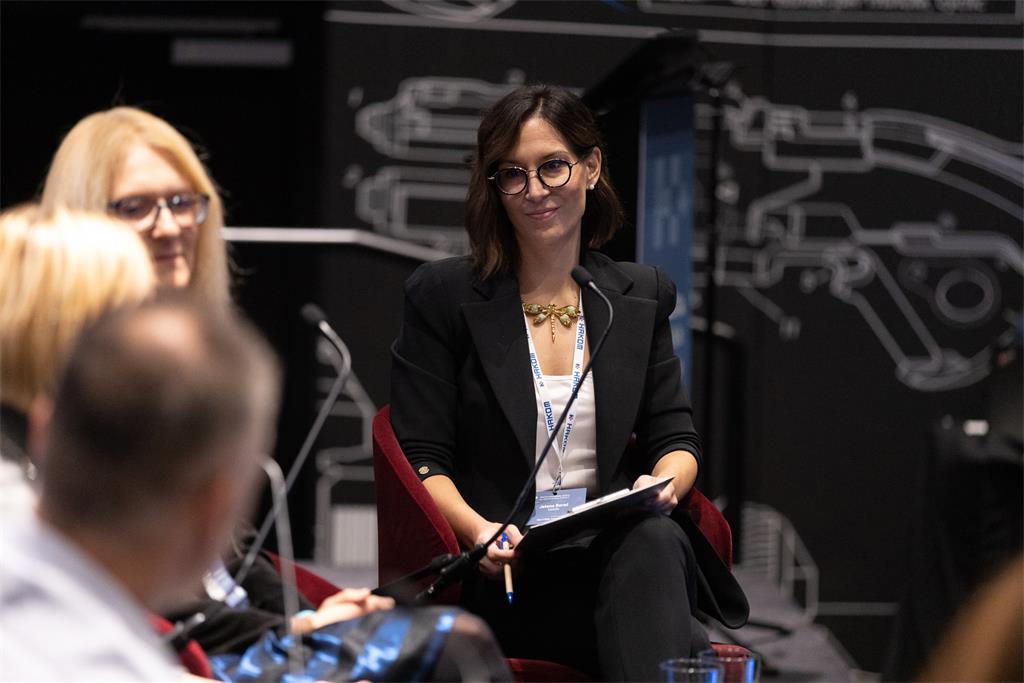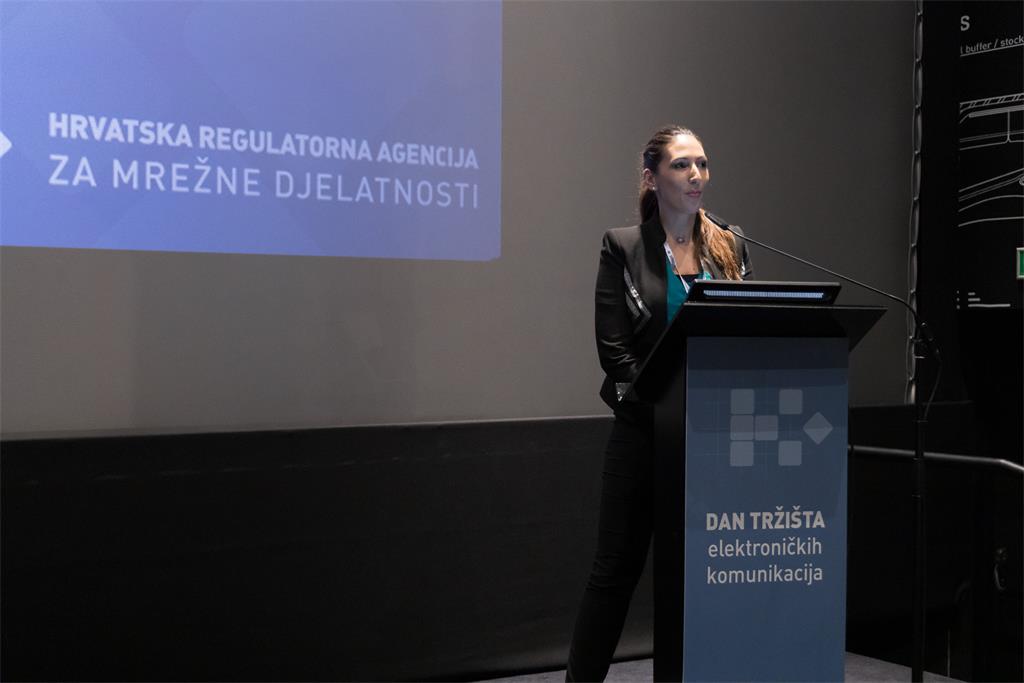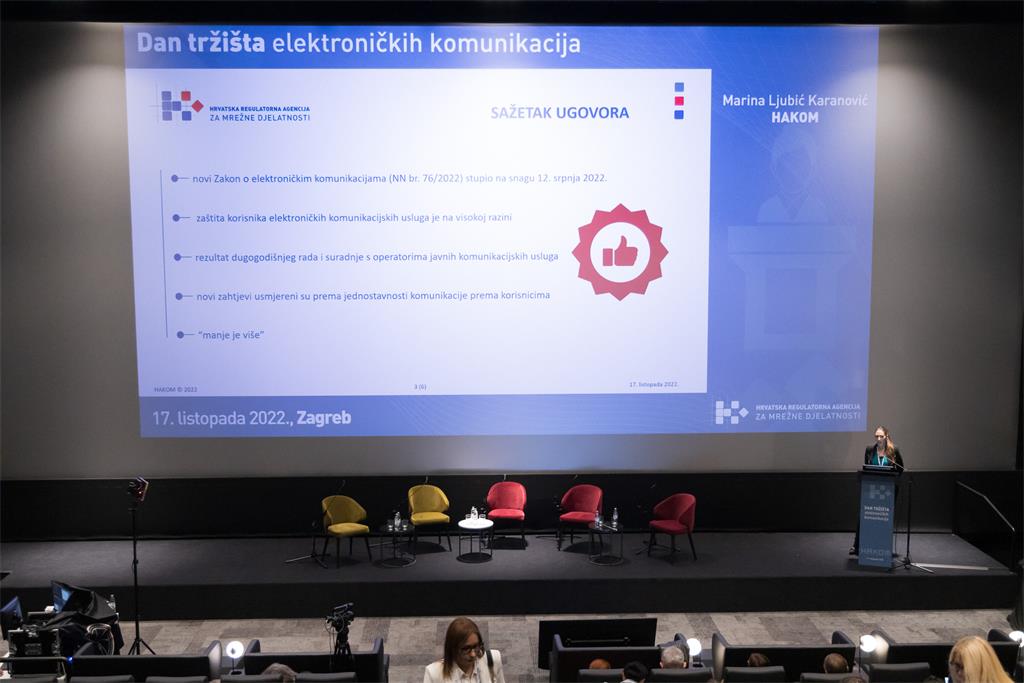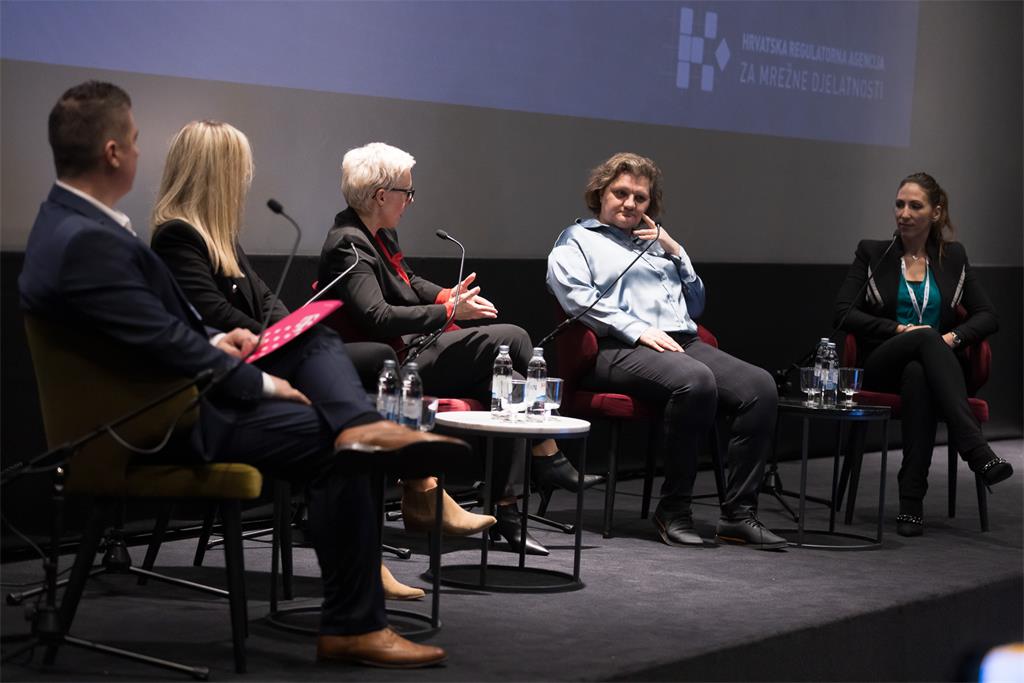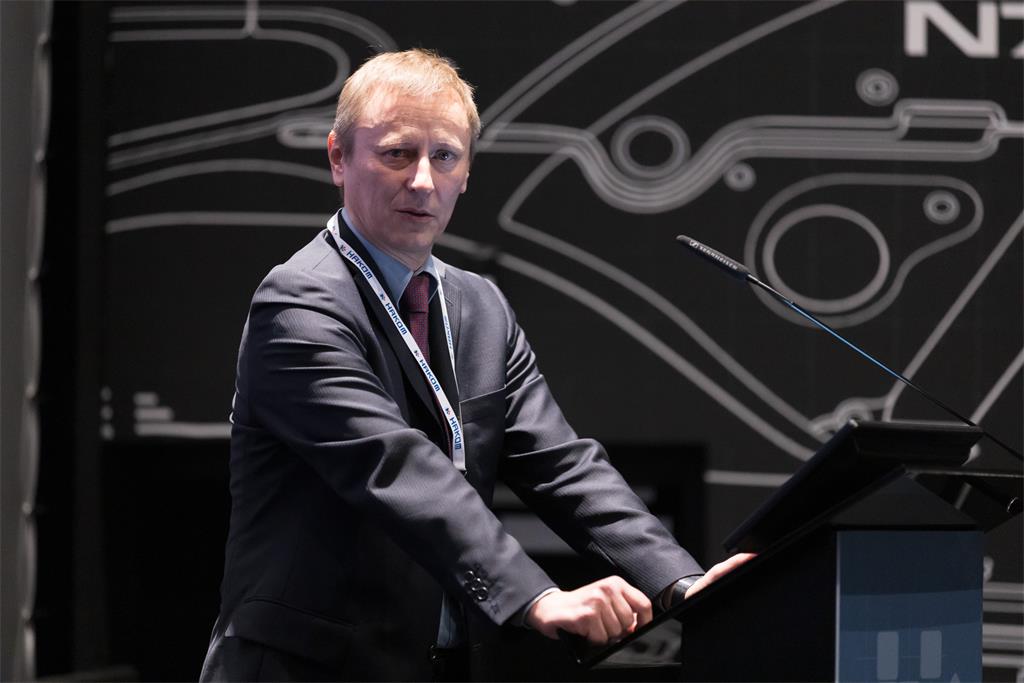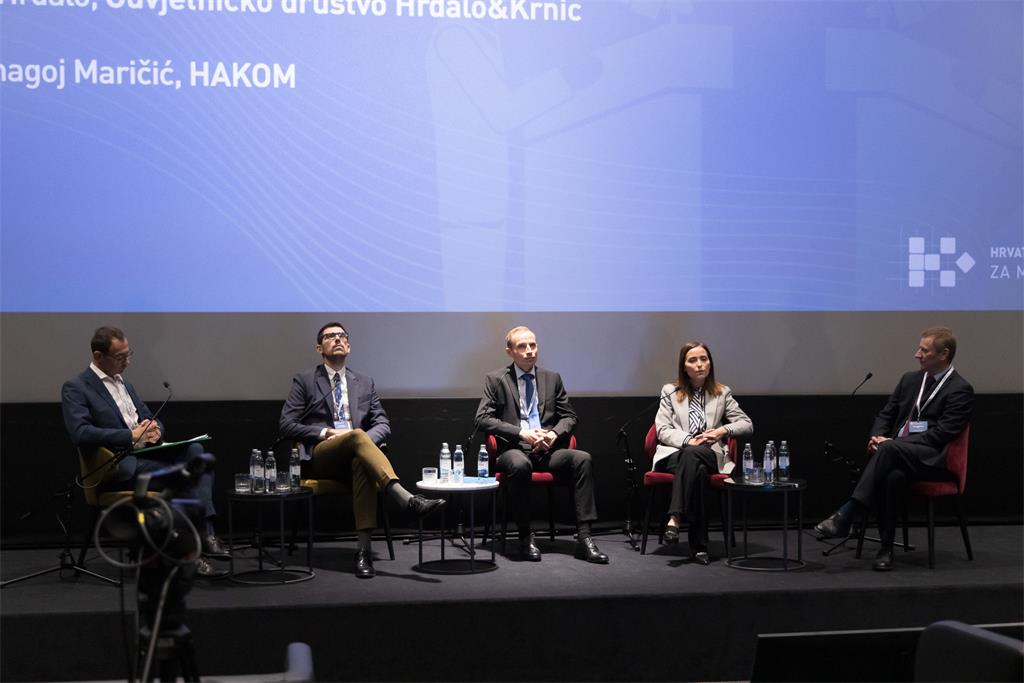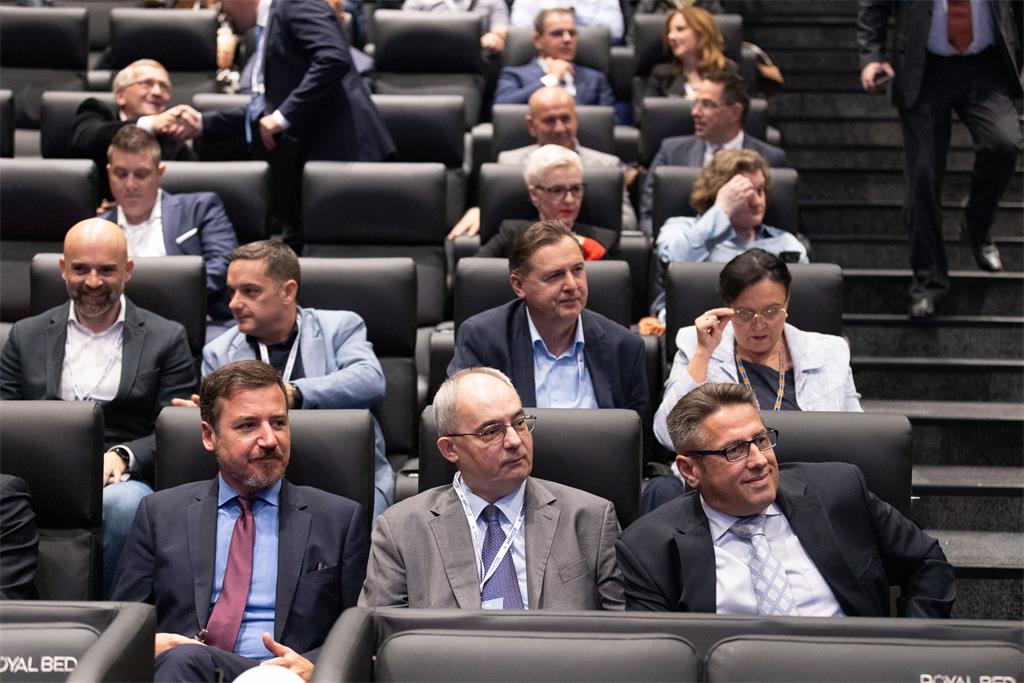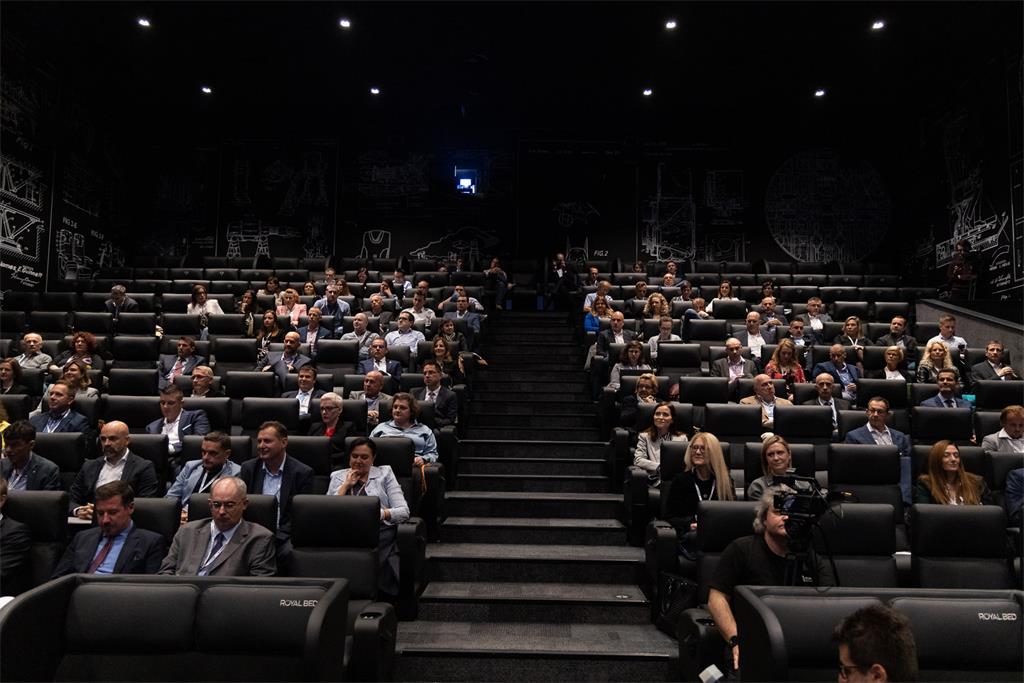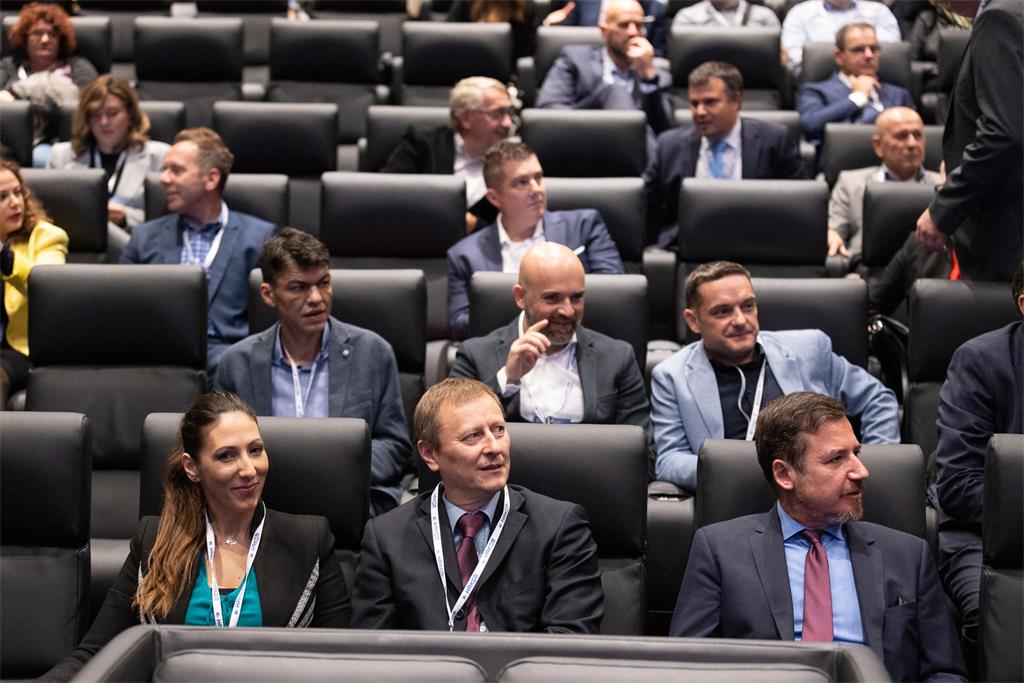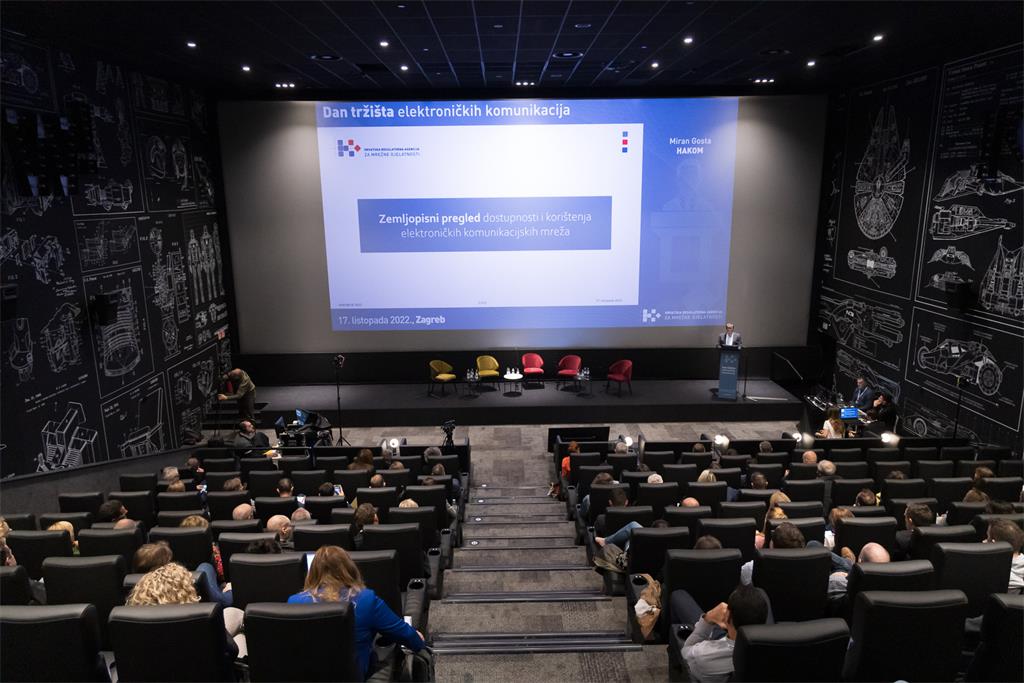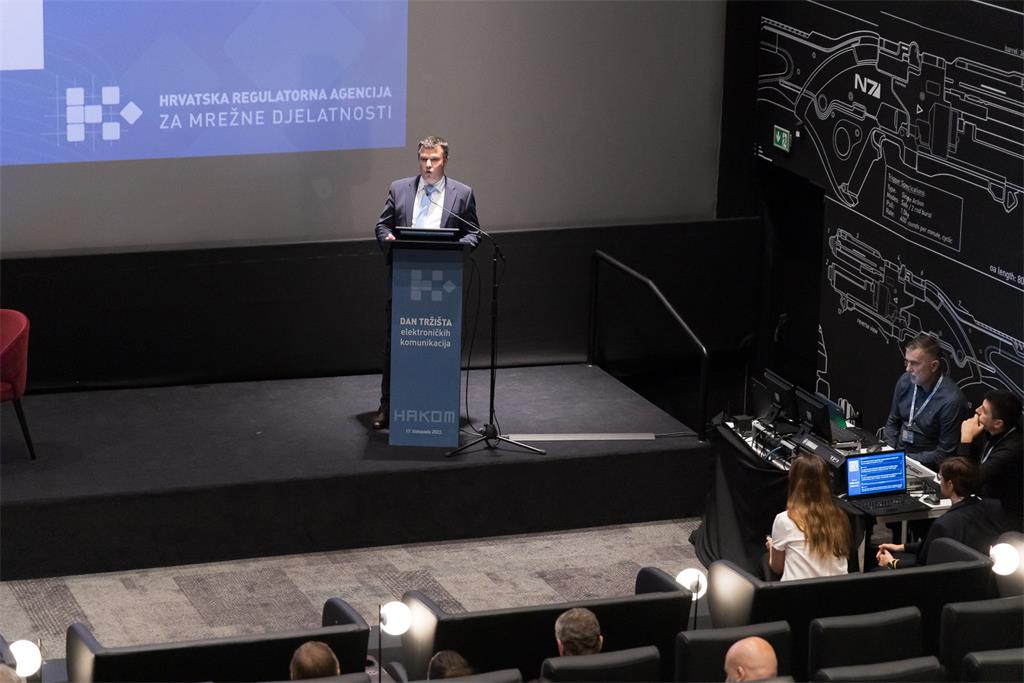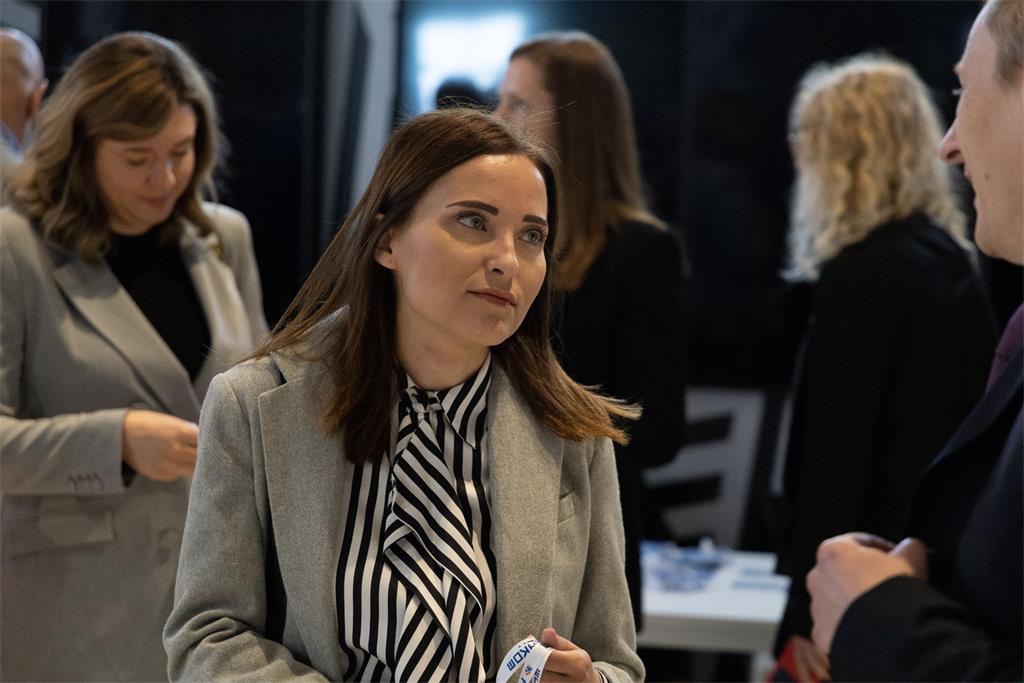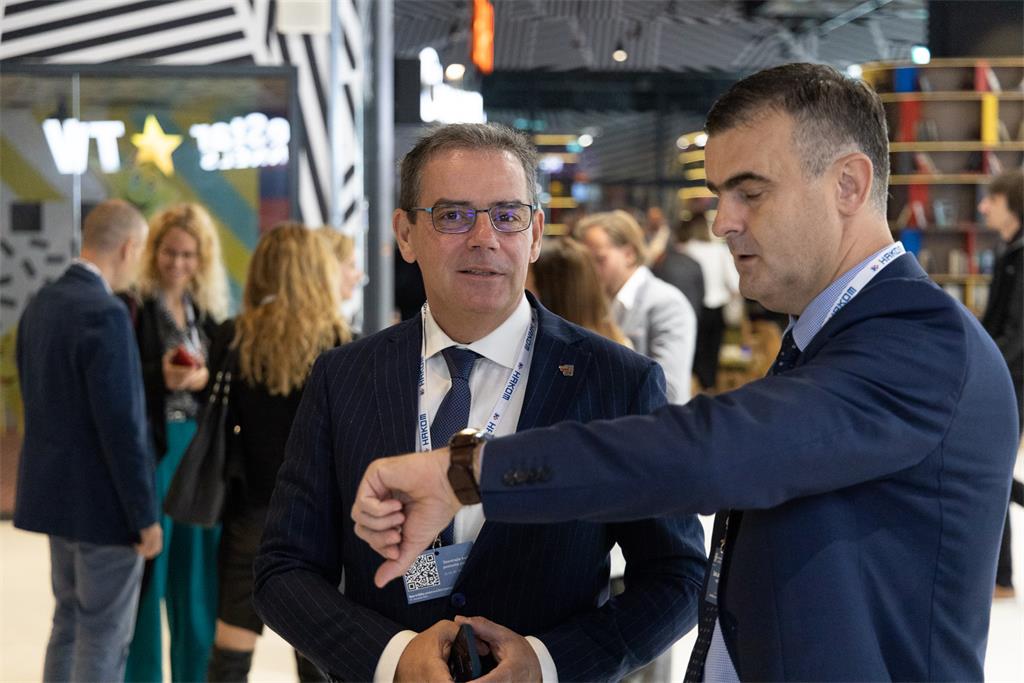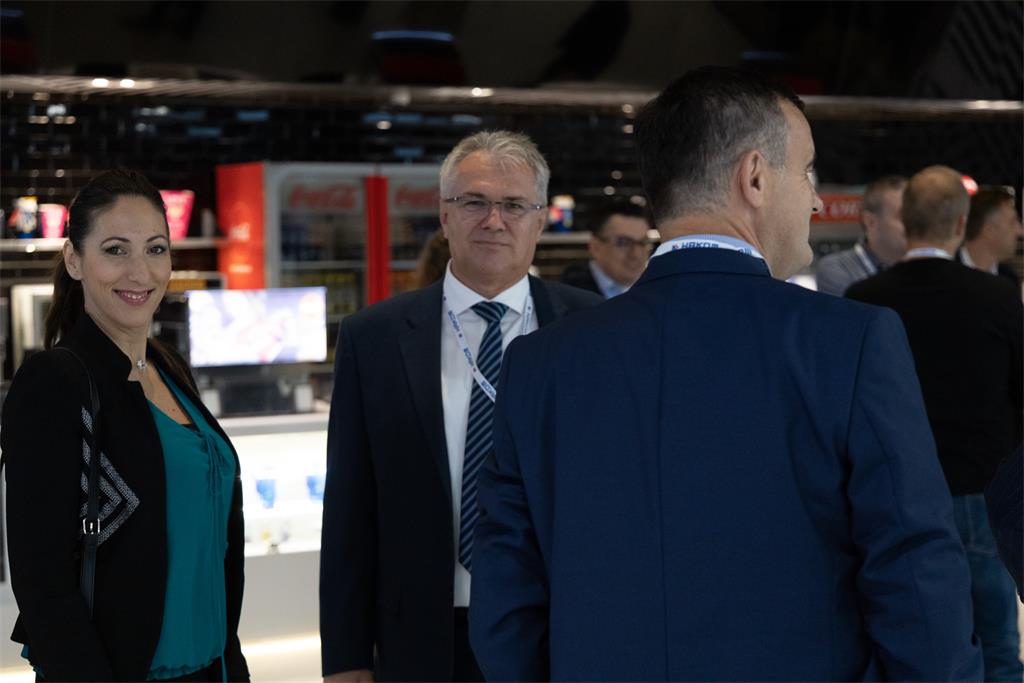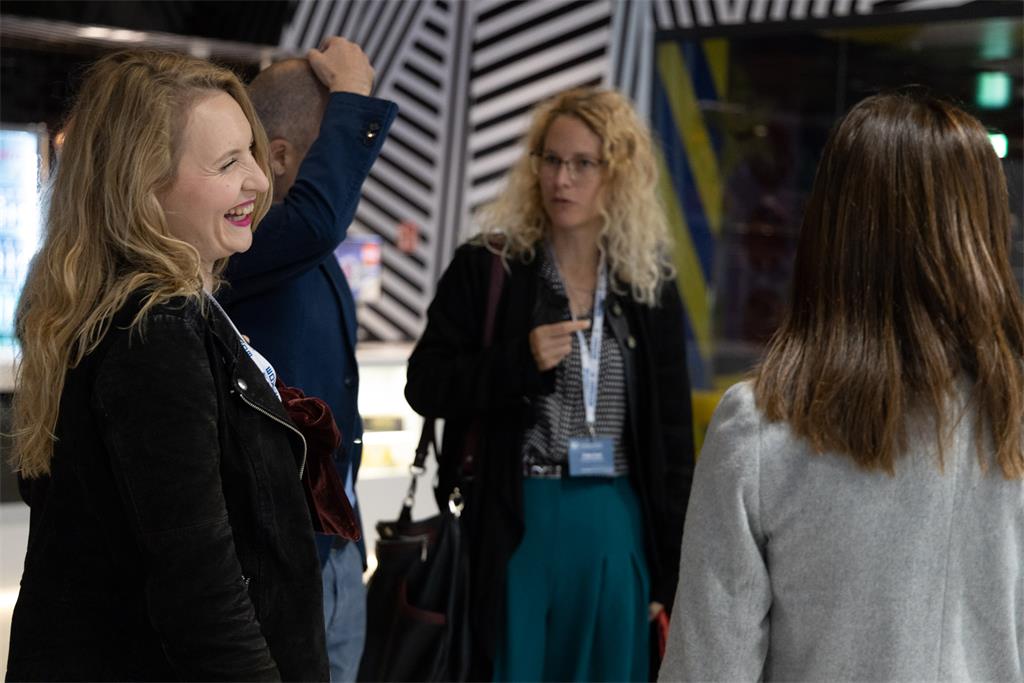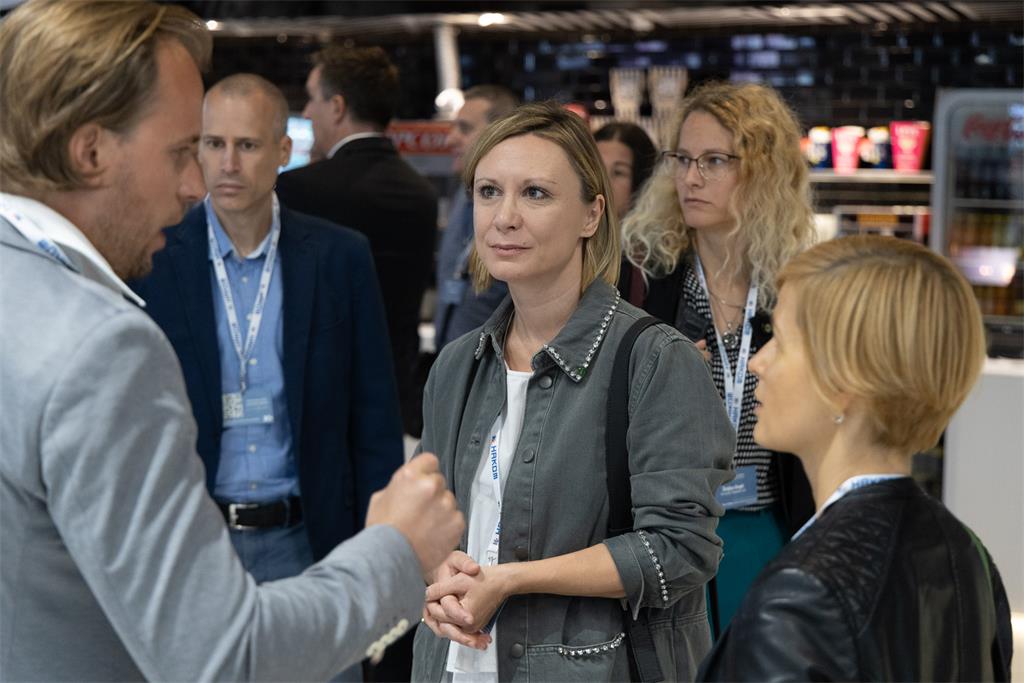Electronic Communications Market Day held
ZAGREB, October 17, 2022 –Under the auspices of Regulatory Authority for Network Industries (HAKOM), the traditional, ninth Market Day was held in Zagreb bringing together representatives of operators, economy, consumer associations and regulators who tried to find answers to some of the issues currently on the electronic communications market during the four panel discussions. On behalf of the Government of the Republic of Croatia, Alen Gospočić, State Secretary at the Ministry of the Sea, Transport and Infrastructure, pointed out the importance of the electronic communications market and pointed out that a new electronic Communications Act was passed in July. "I believe that today's discussions will initiate new ideas and that the electronic communications market will develop through a co-operation.
On behalf of HAKOM as the organizer, the meeting was welcomed by Tonko Obuljen, Chair of the Council at HAKOM who, considering the adoption of the new ZEK, announced that HAKOM expects a lot of work. The period in which we live is uncertain, the war in Ukraine has changed a lot, the economic situation is uncertain, young people have not experienced this kind of inflation so far. The challenges facing operators are how to invest because they do not know what the regulator's further steps are. Although more and more external factors affect our markets, which have so far proved resilient to these influences, we as regulator can promise you a lot of dialogue and co-operation with other state bodies. – said Obuljen.
Four panel discussions
Jasmin Lipović (A1 Hrvatska d.o.o.), Kruno Vrskinski (Hrvatski Telekom d.d.), Ivančica Urh (Ministry of the Sea, Transport and Infrastructure) and Nenad Šlibar (Telemach Hrvatska d.o.o.) participated in the panel discussion, while the panel discussion was moderated by Vladimir Duković (HAKOM).
Why the geographic overview of the availability and use of electronic communications networks is a useful and necessary tool for regulators, users, potential investors and state administration bodies when making decisions and strategic plans related to improving connectivity at local and national level, and what data will be collected and what attitudes operators have regarding the spatial level and detail of public data on the availability and use of their network, as well as whether investors can predict investments in the construction of EC networks in the long term, are the questions to which the response was requested at this discussion.
This browser will be necessary not only for local communities, users and national authorities but also for operators and investors to see where the areas to invest are. Everything is ready for data collection and construction. This database will provide the basis for drafting strategies and business plans for the state and local authorities to see how it can be built with the state aid. HAKOM's activity like the education of local self-government units is of great importance and as such it has been conducted through the held workshops implying the to the local communities how to deal with infrastructure, due to the fact that many of them are not familiar with how the electronic communications infrastructure is planned which can later cause the problem with issuing licenses– Ivančica pointed out in the Republic of Croatia.
Nenad Šlibar stressed that it is public importance to have up-to-date and quality data where there is infrastructure. Optical infrastructure currently comes in poorly documented channels, overview of addresses is not always simple and requires field work which causes an additional cost. It would be ideal to have one geographic overview of existing infrastructure, optical and mobile, but also those under public administration bodies and local communities. This is very important for investors, it is important that the data is publicly available so that we can plan and carry out the investments where they are really needed. – Šlibar said.
Kruno Tršinski also supported the establishment of such a database on behalf of HT. HT's data on free lanes are publicly available to HAKOM and other operators, he said.
Jasmin Lipović stressed that the geographic browser should contain a single address model, with all the data. Today we have this data on many different systems, from population census, post offices and public bodies to the operators. Everything should be centralised in one place and synchronised on a daily basis, he said.
As for business plans, panellists agree that the market is dynamic and that all plans change on a daily basis. In their opinion the investments could be predicted within a year or two.
Is the market highly regulated?
Participants in the panel discussion on “Symmetric regulation as an amendment to SMP Regulation” were Martina Dragičević (A1 Hrvatska d.o.o.), Paula Sunjić Brozinić (Hrvatski Telekom d.d.), Krešimir Kovačević (Pro-Ping d.o.o.) and Morana Čulo Jovičić (Telemach Hrvatska d.o.o.), while the moderator was Jelena Barać (HAKOM).
With the entry into force of the new ZEK, the possibilities for symmetric regulation have been significantly increased and therefore symmetric Regulation has become an important tool for HAKOM in removing the obstacles to competition without the need to conduct market analysis and determine the SMP status of the operator in respect of which symmetric obligations are prescribed. However, the provisions of the old ZEK on the possibility of symmetric regulation were limited only to giving access to wire installations within the building or to the first collection point, while the provisions of the new ZEK and the possibilities were expanded so that, regardless of the established SMP status, operators could be required to grant access, at a reasonable request, to wire installations and cables and related equipment within the buildings, or to the first collection or distribution point, in a manner determined by HAKOM, when located outside the building. However, access conditions, set out in those obligations, may include specific rules on access to network components and related equipment and related services, on transparency and non-discrimination and on the allocation of access costs, adapted where necessary to take into account risk factors. Furthermore, if the HAKOM determines, taking into account the obligations arising from the analysis of any relevant market, that such specific obligations do not sufficiently address large and lasting economic or physical obstacles to multiplying network components, highlighting existing or emerging market conditions that significantly limit competitive outcomes for end-users, it may extend, under fair and reasonable conditions, the determination of such access obligations beyond the first collection or distribution point, up to the point to which it is found to be closest to end-users. In addition, it is stipulated that HAKOM may also impose the obligation of active or virtual access to network components if justified by technical or economic reasons.
Can symmetric regulation complement SMP regulation? What are the new opportunities offered to regulators by the new regulatory framework? What changes should be made in Croatia in relation to the already existing symmetrical Regulation?
Symmetric regulation does not replace SMP Regulation, it should not only be abolished. Any move that reregulates players in the market can affect investments negatively. – said Martina Dragičević.
The less regulation the better – the position of Paula Šunjić Brozinić, who believes regulation should be reduced to a minimum. If the symmetric Regulation continues, it should be the only solution. HAKOM should give up further asymmetric Regulation towards optics, and investors should be relieved of financial and regulatory burden and allowed to invest, she said.
Krešimir Kovačević, has stepped forward as a representative of an operator coming from a completely different market, rural area, and as far as Regulation is concerned, he said he considered the regulation good and desirable. "We have plans for enlargement, we believe that a symmetrical regulation would give us the possibility to expand business beyond the current areas, he said.
Morana Čulo Jovičić stressed that symmetric Regulation already exists, but also that the market is highly regulated, which is why caution is needed when imposing new obligations that should be kept to a reasonable degree so as not to burden the investors.
Is the user allowed to purchase his own equipment or should he hire it with the operator?
“The new rules for transparent service contracting and termination of contracts” are the subject of panel discussion whose participants were Senka Erslan (A1 Hrvatska d.o.o.), Neven Alujević Grgas (Hrvatski Telekom d.d.) Iva Dragić (Optima telekom d.o.o.) and Petra Nakić (Telemach Hrvatska d.o.o.), and panel discussion was moderated by Marina Ljubić Karanović (HAKOM).
Since Commission Implementing Regulation (EU) 2019/2243 establishing a template for a summary of contracts for providers of publicly available electronic communications services is in force pursuant to Directive (EU) 2018/1972 of the European Parliament and of the Council and that the new electronic communications law on the panel has entered into force, practical application of the summary of contracts for end-users has been addressed, with the emphasis on all problems encountered by operators during implementation, but also on what this summary brings to the end-users in terms of transparency. Furthermore, with the entry into force of the new KEC, there was a change in the charging of equipment if the same user did not return and the panel referred to the method of application of Article 145, as well as the possibility that the user does not take equipment from the operator when concluding the service but uses its acquired from a third party.
How will depreciation of equipment acquired for use by the user be calculated and can it use its own equipment?
- In the EU, all operators must use a very detailed form. Of course, we as operators would like to have freedom of creation, but these are minor problems. What is important is that the protection of users in the Republic of Croatia is among the leading in the EU, exclusively through the efforts of HAKOM, which we, as operators, have not always welcomed with open arms. “We have already largely fulfilled these obligations, which the summary prescribes only in a slightly different form, and that is why we do not have such a problem providing such information,” said Erslan.
Iva Dragić said the regulation was clear, referring to the established mandatory summary of the contract. The complete contract documentation and summary will have the same contract number, unified for the specific beneficiary, while HAKOM regulations in the field of protection are far ahead of all in the EU.
Neven Alujević Grgas stressed that HT is in the process of completing the contract summary document. The number of objections has been reduced since the summary was implemented, so that HT absolutely supports the upgrading of the existing contract summary. The most important thing for users is that it will be available even before concluding the contract so that the user can compare it with all contracts of other operators, which will contribute to better user experience on the market.
According to Petra Nakić it is good that the user can get all the information in one place, and the best part is that he will have written confirmation of what the operator offered in the interview. "We will have fewer situations of deceptive practices and wrong communications. Everything will be much more transparent and thus safer, she said.
With reference to the equipment depreciation, HT decided to divide the equipment by value into clusters and reduce their value on an annual basis. The users should return the devices so that the situation does not occur that they have to pay for them.
In addition to the obligation prescribed by the refund ordinance, after the invoice has been delivered, A1 sends additional two letters to the beneficiary to enable the return free of charge. Otherwise, users can return A1 equipment at the operator's expense. We care to collect this equipment, if necessary to destroy it properly. – Erslan said.
The possibility of using own equipment is prescribed by law, but all equipment must be compatible with the operator's networks. In such cases, where the user uses equipment that has not passed all tests, the operator cannot control the device, operate a remote-distance deviation, the operator should not be responsible for the quality of the access service or guarantee the minimum speed. Users must know what they get from their equipment as well s from the operator's equipment so that they can ultimately decide on their own, they could be heard during the meeting. As for HT, users can already use their equipment, it said.
Should OTT providers contribute financially to the development of the networks they use?
At the last, fourth panel discussion on “Should OTC providers contribute financially to the development of the networks they use?” Igor Zgrabljić (Google), Mislav Hebel (HAKOM), Iva Cibulić Blažević (Hrvatski Telekom d.d.) and Vlaho Hrdalo (Hrdalo & Krnić Law Firm), and the moderator was Domagoj Maričić (HAKOM).
Currently, the EU, at the level of stakeholders and institutions, is discussing whether technological giants (Google, Meta, Netflix) should contribute more to covering the costs of developing and using communication networks through which their services are used, particularly in the context of the Digital decadent and full 5G and Gigabit coverage targets until 2030. On the other hand, technological giants believe that DSA and DMA have already been highly regulated and that draconian obligations and potential penalties are imposed on them. The panel was preceded by an introductory presentation presenting the initiative and the current situation in the EU institutions.
Iva Cibulić Blažević said some OTT providers had recently refused to pay operators and such situations are common. Operators cannot deprive users of access and, on the other hand, cannot ensure fair burden sharing. It is not an idea to prescribe levy, rent or compensation, negotiating positions are not the same, OTT players refuse to pay what they have paid so far. It is not the objective of the initiative to determine payments, but to provide for an obligation, negotiation and arbitration if the negotiations fail. We as operators should not block the user from accessing applications. This is a political issue, according to Cibulić Blazević.
Igor Zgrabljić said it is the user who takes the subscription and the device and the user should be in focus. Google has an open partnership with telecoms. These companies grow together, co-operate and maintain relationships with service providers that are more widespread than thought. Big OTT players are already investing, Google invested 23 billion euros last year in Europe, investing in undersea cables, investing in a lot of things that are not being reported to the public. It is not true that large technology companies do not invest in infrastructure, Zgrabljić said.
Lawyer Vlaho Hrdalo said that as a user, “It doesn’t concern him too much when the operators are crying” for higher costs. "I do not mind that Americans have to pay Europe more money, I do not agree that Google pays something that I pay as a user through the turnover spent, I think that adjustment is very important and that telecoms will have to adapt, which they have done so far, much better than the banks. I do not think that refusal to participate is the right path, but I agree that something that is not owned by you cannot be paid," said Hrdalo.
Mislav Hebel focused on the preliminary report by BEREC, the body of European Regulators for electronic Communications that concluded that there had been no substantive changes in the market that would be worth regulatory intervention. There must be an appropriate justification for each regulation measure, so that at this point BEREC will continue the analyses. In this process, everyone is interdependent, and it is the user who, at the end of the day, must have a quality service at an affordable price.
In his closing speech, Miran Gosta, the Executive Director at HAKOM, referred to the future plans for the development and operation of HAKOM. He summarized the discussions and announced the activities of HAKOM that will follow. "We want users to have confidence in the operator, we do not need only the fulfilment of obligations on the legal side. I believe that we have also made a contribution to transparency through this discussion. HAKOM organizes market day because it wants to open a dialogue with stakeholders, and the involvement of all stakeholders is very important to us. “Only if we take into account the views of all stakeholders we can ultimately achieve satisfaction”, Gosta said.
For additional information please contact:
Croatian Regulatory Authority for Network Industries (HAKOM)
- Roberta Frangeša-Mihanovića 9 Street
- 10110 Zagreb, Croatia
- Tel. + 385 (0) 1 700 70 07
- Fax + 385 (0)1 700 70 70
Media inquiries can be submitted online using HAKOM’s official website: www.hakom.hr
About Hakom
HAKOM - Croatian Regulatory Authority for Network Industries – ensures preconditions for a fair market competition, stable growth and environment for innovations in the electronic communications and postal services market. HAKOM protects users’ interests and the possibility of choice among various communications and postal services at affordable prices, defines sustainable competitive conditions for operators and service providers under fair conditions for return on investment, and provides support to economic growth, public services and the quality of life in the Republic of Croatia by using modern technologies. HAKOM’ strategic goals are: to promote regulation of the electronic communications and postal services market, to support growth of investments and innovations in the electronic communications and postal services market, to provide efficient use of limited resources, to accelerate the growth of broadband products and services, to provide affordable offers of communications and postal services, to provide protection and informing of users, to build an efficient and comprehensive information system, to define and implement efficient processes, and to acquire multi-disciplinary expertise in market regulation.

